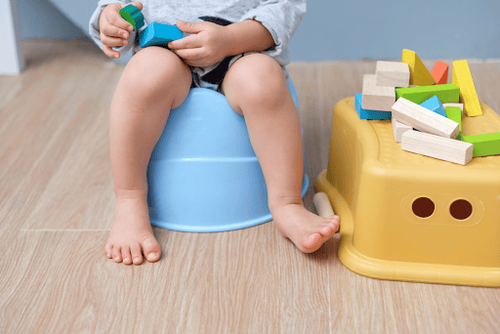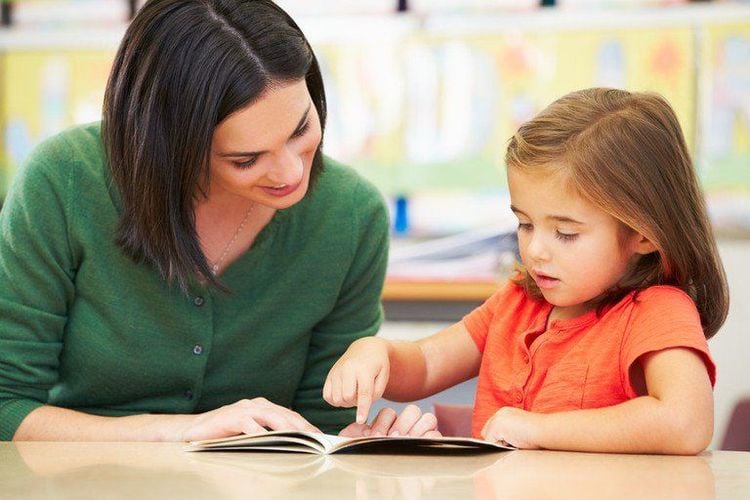This is an automatically translated article.
The article was professionally consulted with Master, Doctor Vu Quoc Anh - Pediatrician - Department of Pediatrics - Neonatology - Vinmec Danang International General Hospital.Preschoolers 25 months - an extra month after 2nd birthday with new developments in both behavior and cognition. Your child will always hang around you, loving to chat and get attention. Therefore, parents should care, love and help preschool children explore the world around them.
1. More motor skills
A 25-month-old preschooler is already able to walk well, has more even steps, and can perform heel-to-toe movements as smoothly as an adult. Children also gradually improve their jumping and throwing skills with their hands better, they brush their teeth without assistance, and know how to wash and dry their hands. If you give your child a ball, you will be surprised at his skillful hand-eye coordination.However, the baby still has to wear diapers when sleeping at night even though he is able to go to the toilet on his own when he is awake during the day. You also do not need to worry too much when you see a 26-month-old preschooler still sucking his finger, because this habit only affects when the permanent teeth only erupt at 6-8 years old.
26-month-old preschoolers can completely feed themselves without feeding. But even if your child wants to do things on his own, you still need to pay attention to help him when he combs his hair, brushes his teeth, cuts his nails - feet, even cleans up after going to the toilet...

Trẻ 2 tuổi có thể tự ý đi vệ sinh
2. Learn how to make sentences
Preschool children over 2 years old will be able to use at least 50 single words, build simple two-word sentences, and be able to follow two-step requests, such as “Grab the shoes and give them to Dad so he can give them to me.” on the shelf.” Your baby can understand what you say, as long as it's not too complicated. You can understand about 50% of what your child says, but don't expect everything he says to make sense until he's about 4 years old. Young children often confuse pronouns, so you may find your child avoids using the subject or predicate entirely in a sentence.
Ba mẹ có thể khuyến khích trẻ đặt câu hỏi
3. Taller and thinner
A 26-month-old preschooler will continue to "lose fat" after his second birthday, no longer "milky" or chubby as before. At this time, the baby's head growth slows down, while the limbs and trunk begin to lengthen. As a result, the child's body proportions will become more and more similar to that of an adult's.Although not gaining much weight, children 2 years of age and older are still growing and maturing steadily. Factors such as genetics, environment and nutrition will directly affect a child's physique. Parents will see the same age group, but each child will have a different height and weight, along with some unique physical characteristics.
4. Explosive energy
Most preschool children from 2 to 3 years old have an abundant source of energy. So try to give your child a chance to run and jump outside every day. Movement and movement help your baby build strength and increase coordination.However, more running and jumping means you will have a harder time. Check the safety levels of the house to limit the risk to your active child. You also need to teach your child to distinguish between indoor and outdoor play, such as no indoor soccer, no water and sand in the house...
Try to limit the time your 25-month-old preschooler is glued to screens. electric devices . Not only is sitting still like that harmful, but you also need to pay attention to what your baby is watching.

Tránh cho trẻ tiếp xúc với thiết bị điện tử
5. Cut fat
Fat is an important part of a child's diet, but the American Academy of Pediatrics recommends reducing fat intake by 25-month-old preschoolers to less than 30% of daily calories. Research has shown a strong link between excess childhood weight and the risk of obesity in adulthood. Switch to low-fat milk and cheese, and continue to give your child plenty of whole grains, beans, fruits, and vegetables.Although breakfast is very important, some children will not want to eat it as soon as they wake up, while others just leave the bedroom and go straight to the kitchen to find food. This is normal and mothers should be flexible according to the needs of their children, creating space between meals and snacks. If you have dinner around 5-6 pm, you need to have an extra snack before going to bed with yogurt, a slice of fruit, cheese and cookies... to be full and sleep better.
6. Sleep less
Between the ages of 2 and 3, children need 9-13 hours of sleep each night. Most children also nap in the early afternoon, but some will skip naps altogether. There is no proper amount of sleep at this age, so give your child the rest he needs to feel alert.In general, your baby will be tired after lunch and you need to rest a bit. Try to ignore it if your baby doesn't nap. Just at least 1 hour of quiet in the middle of the day is enough for the baby to recover, for the mother to recline or to use the time for herself effectively.

Trẻ ở độ tuổi này sẽ có thời gian ngủ ít hơn
7. Tips for taking care of preschool children 25 months - 26 months
Help your child explore the natural world by spotting bugs, ants, frogs and other garden worms. Teaching children to be gentle with these creatures is also learning to respect life. Let your child walk barefoot in safe places to learn about the world through touch from the soles of his feet. If you have older children, create opportunities for siblings to play together. This helps older children feel part of the family and not isolated. Read good children's books with your child every day in relaxing places in the house. This is both a way to broaden your child's knowledge and give you the opportunity to rest without wasting time. If your baby's face is close to something he can't see clearly, or he covers one eye with his hand to focus, see your doctor for an eye exam. Vision problems that are detected early will have a more positive outcome. Finally, plan your work, socialize with others, and spend time alone, instead of staying at home all day with a mischievous preschooler. Try not to use up all your money to buy all the interesting things for your little one and neglect yourself. Think about your own needs, as well as that of other family members.Caring, protecting and nurturing children is a long process, so parents should be a companion to help children develop their physical and mental abilities well. For children to be healthy and develop well, it is necessary to have a nutritious diet in terms of quantity and quality balance. If children are not provided with adequate and balanced nutrients, it will lead to diseases of excess or lack of nutrients, which adversely affect the comprehensive development of children in terms of physical, mental and motor skills.
Parents should supplement their children with supportive products containing lysine, essential micro-minerals and vitamins such as zinc, chromium, selenium, and B vitamins to help fully meet their child's nutritional needs. At the same time, these essential vitamins also support digestion, enhance nutrient absorption, help improve anorexia, and help children eat well.
Parents can learn more:
Signs of zinc deficiency in children
Micronutrient deficiency and failure to gain weight in children
Reference source: babycenter.com














